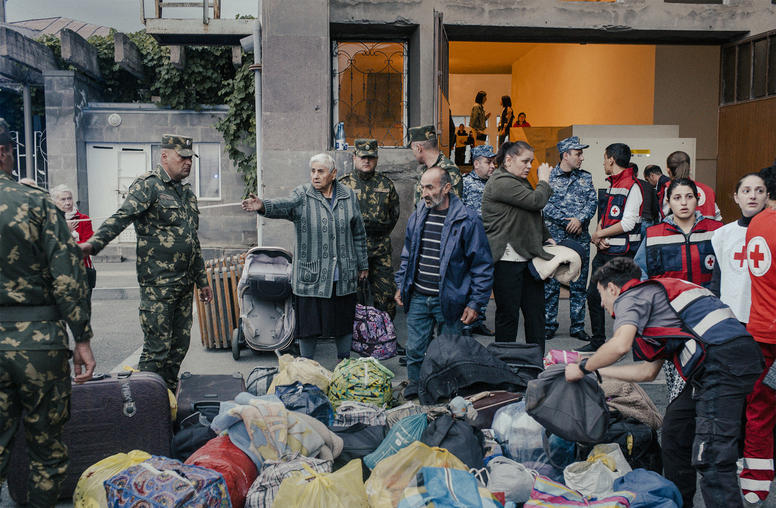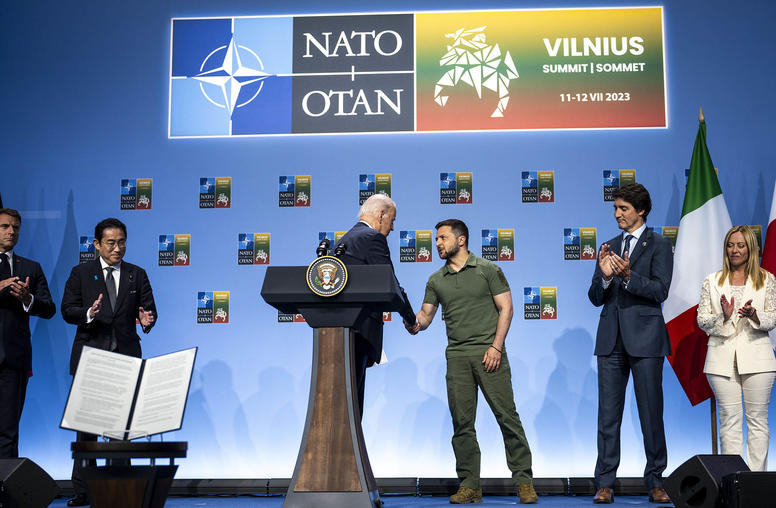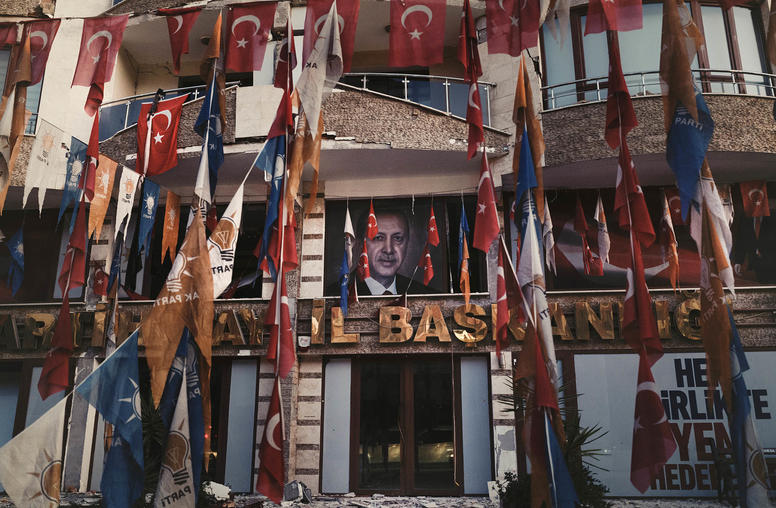Turkey and the European Union: Web Links
Below are links by topical categories to resources primarily in English providing information on Turkey and its proposed accession into the European Union.
- European Union (EU)
- Government of Turkey
- Media and News Sources
- Other Government Agencies and International Organizations
- Political Resources and Selected Documents
These links complement the conflict-resolution simulation exercise on Turkey and the EU for the state-level high school winners of the Institute's National Peace Essay Contest in June, 2005.
European Union (EU)
- Europa, the European Union's server
Europa contains substantive material on the European Union, its institutions and policies, official documents, publications, news and other information resources. A section with European Governments on-line lists the 25 members of the EU, four candidate member states (including Turkey), and other European countries, with links to governmental resources for each country. A special web section on EU Enlargement--one year later looks at the impact of having added 10 member states in May 2004 and contains photos, documents, press releases and related materials. - Europa: Enlargement
Web site of the European Commission devoted to the general issue of European Union enlargement contains information on candidate countries, including a profile of Turkey, negotiations, financial assistance and communication strategy. Links to related pages include more recent information on enlargement under Europa: Activities of the European Union: Enlargement - EUROPAL: The European Parliament On-Line
Web site of the European Parliament, one of the bodies of the European Union, contains material on key topics, such as enlargement, and has documents and transcripts of debates on Turkey's accession to the European Union: December 13, 2004 debate on the report by Mr Eurlings on Turkey’s progress towards accession, and the December 15, 2004 debate and vote on this issue.
Government of Turkey
- Republic of Turkey: Ministry of Foreign Affairs
The web site (English version) includes material on the Ministry, press releases, announcements, speeches, consular information, documents in the diplomatic archives and an overview of Turkish foreign policy. One section of the ministry's web site (under Foreign Policy: Main Issues) covers topics such as Turkey-EU relations (under Foreign Policy and financial cooperation, the Convention on the Future of Europe, the accession process, and EU enlargement; it links to several documents and an archive of press releases and papers. - Turkey & EU, Turkish Embassy, Washington, DC
This section of the Turkish Embassy's web site gives some background information, dated 2001, on the issue of Turkey and European Union.
Media and News Sources
- BBC News | Europe | Deal struck over Turkey-EU talks
BBC news story dated December 2004 on the issue of Turkey's recognition of Cyprus as a precursor to European Union accession. - European Union Full Coverage on Yahoo! News
Numerous links to news sources, stories from various wire services, reports in audio and video, opinions and editorials and related web sites for the European Union. - European Union News
Articles from around the world focusing on the European Union, including older articles on Turkey's bid to join the European Union . - Radio Free Europe/ Radio Liberty
A search on "turkey EU" produces several articles on Turkey's candidacy for the European Union membership, such as Turkey: Is Ankara Growing Weary Of EU Reforms? or EU: Leaders Agree In Principle To Invite Turkey To Join, With Conditions Attached. Also includes a section on News and Features on EU Expansion and a special section on European Union Expands Eastward. - Worldpress.org: The International Press on Turkey's European Membership Bid
Comment and analysis from London, Dubai, Beirut, Frankfurt and Istanbul, Oct. 8, 2004.
Other Government Agencies and International Organizations
Republic of Armenia
- Republic of Armenia, Ministry of Foreign Affairs
The Armenian Ministry of Foreign Affairs web site includes a Statement on EU-Turkey Accession Talks, noting the European Parliament vote on December 15, 2004 calling on the European Commission and European Union Council to require Turkey to recognize the Armenia Genocide.
Republic of Cyprus
- Republic of Cyprus
The Republic of Cyprus web site includes information about the government and various agencies, a section on the EU and material on the Cyprus Issue, which refers to the government's view of its relationship with Turkey, containing such titles as "Turkish Invasion," "Turkish Colonization," and "'TNRC'--An Illegal Entity." - Press and Information Office, Ministry of the Interior, Republic of Cyprus
The web site of the Ministry of the Interior contains several materials related to the Cyprus Problem, including documents, fact sheets, press bulletins, and publications. United Nations and European documents, as well as proposals, agreements, and other documents related to Cyprus are included. Among the European documents are those from the European Union.
United Nations (UN)
- UNFYCIP: United Nations Peacekeeping Force in Cyprus
The web site for this UN peacekeeping mission describes the mission's mandate, background information, news and press releases, documents which include Security Council Resolutions and reports, maps and fact sheet.
Political Resources and Selected Documents
- Cyprus: one year after accession
Speech by Mr Olli Rehn, member of the European Commission responsible for EU enlargement, given before a Cypriot audience at the Cyprus International Conference Center in Nicosia, May 13, 2005. He notes the one-year anniversary of the Republic of Cyprus joining the European Union and makes specific mention of Turkey and its application to the EU. - EU Accession Treaty--Protocols on Cyprus
Contains the full text of the Protocol for the Cyprus accession to the European Union, posted on the web site of the Press and Information Office, Cyprus Ministry of the Interior. - European Commission proposes Measures for the Turkish Cypriots (July 2004)
Contains four full-text documents in PDF posted on the web site of the Press and Information Office, Cyprus Ministry of the Interior. - Political Resources on the Net: Turkey
Links to information on elections, various political parties and organizations, news and general resources for Turkey. - Post-Helsinki: Turkey, Greece and the European Union
A February 2000 article by Philip H. Gordon on turkey's candidacy for European Union membership, on the web site of the Brookings Institution. - Report on the 2004 regular report and the recommendation of the European Commission on Turkey's progress towards accession, December 3, 2004
Report of the Committee on Foreign Affairs of the European Parliament with Camiel Eurlings as rapporteur. - Structural actions in support of [EU] enlargement
Background and contextual information related to the impact of European Union enlargement on regional policy. The web page links to several documents of the European Commission looking at economic and social cohesion and the impact of enlargement on regions bordering candidate countries, for example. - Turkey, the EU, and Freedom in the World: An Examination of EU Accession through the Lens of Data on Political Rights and Civil Liberties (PDF)
Written by Sarah Repucci, this journal article in the July-September 2004 issue (vol. 6, no. 3) of Insight Turkey, posted on the Freedom House web site, discusses Turkey's candidacy for the EU using material from the Freedom in the World Annual Survey.
Updated: July 25, 2005



